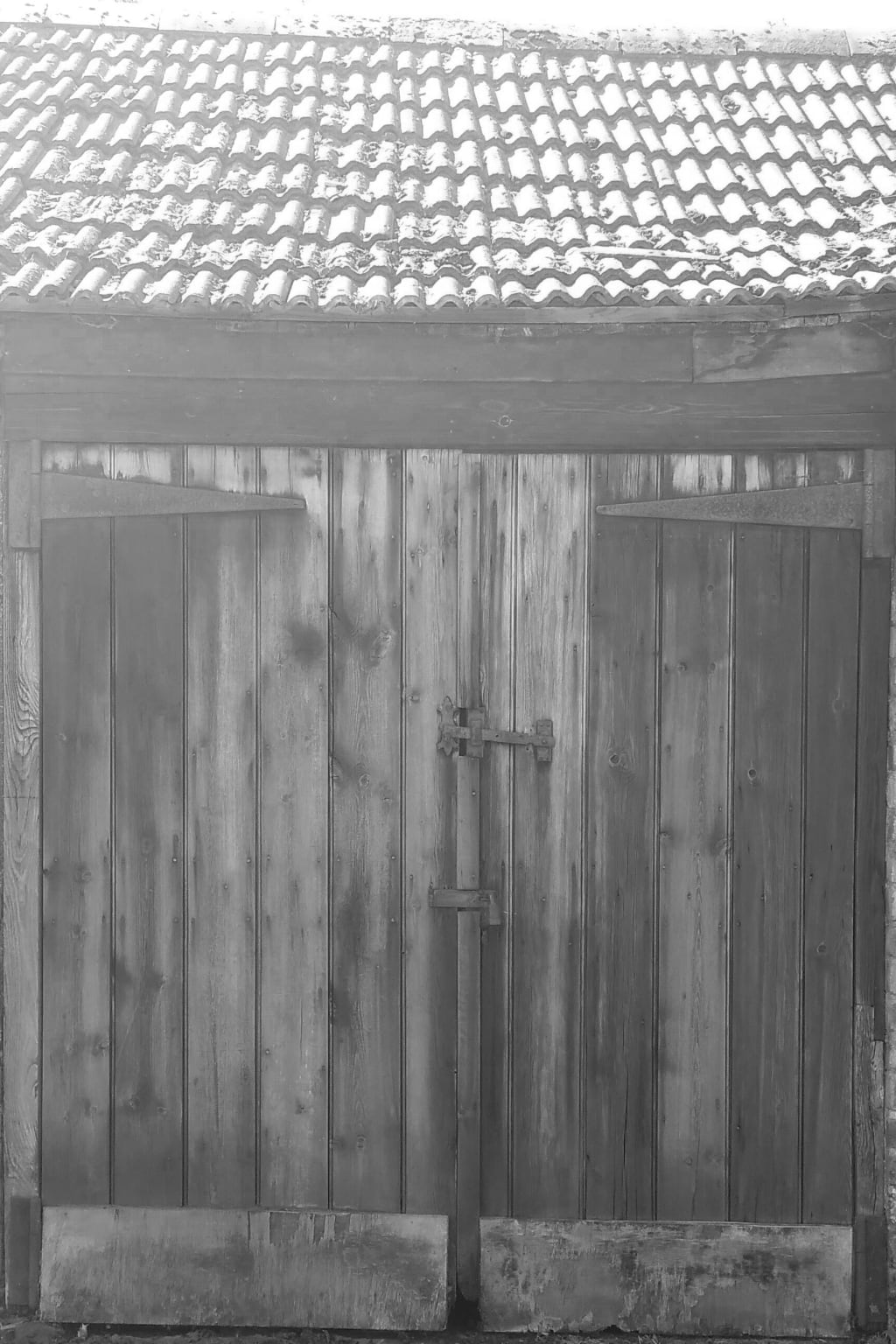
The barn had once been full of him.
It was his space, undisturbed by ex-wives and children (though he disliked neither inappropriately). A space in which Father was himself alone, his character undisturbed by perception.
In time, the barn had even smelled of him, that smothering scent of sanded wood. That oily stink of wood-cutting machinery. Without a doubt, the barn was his place.
Before him it had belonged to a South-African Reverend who lived alone in a house too big by far for a lonely man. Where once The Reverend had bent his knees to the polished timber floor, now Father varnished the bangles he’d made for his daughter’s tiny wrists.
And after Father, it would belong to two young American men, inseparable and kind. In place of dust and sawn timber they laid down a sofa from which they could gawk at the stars through the skylight. The dizzied warmth of the room made it seem as though the crescent moon, shaped like a sleepy lover’s eye, gazed them from afar.
Father never felt that watchful gaze. To him, plenty of thoughts crossed his mind within the barn, but none reached further than the consideration of his carpentry.
Son was often in the garden, frowning at Father’s cloaked movement through the dust-laden windows. They were single glazed; when Father switched on the pillar drill, they rattled so hard it was a miracle they didn’t shatter. It was an anchor for Son, whatever imaginary world he’d drifted to while kicking over anthills, the rattle always brought him back.
Father often claimed, without a hint of hubris , but certainly a touch of pride, that carpentry required steadier hands than surgery. Son was mesmerized by the mantra, curiosity setting him on the path toward carpentry.
Of course, curiosity was only the beginning for him. When Son thought he was big enough, almost tall enough to headbutt father’s hip, he decided it was time he contributed to the barn; add to the world of dust and steam.
In his mind, Son saw himself enter the barn clean, and leave covered in a patina of dust he’d be coughing up for the next week. Reality rarely reaches the mind’s apex.
For a start, Father wouldn’t have Son in the barn, it was too dangerous by far for a boy of five. If Son wanted to help, it had to be a sunny day. Father would bring the tools outside, and let Son get to work.
One time, that Son could surely not forget, Father, beaming, brought out a square sheet of timber.
I’m painting a primer. The first coat of paint, it must be smooth, the grain must travel in one direction only. Father said, then offered Son the brush.
Retrospect is peculiar. They most likely shared a vision of how well Son’s painting would go. They both pictured a perfectly uniform coat of paint. After all, how could Son not match Father’s innate ability?
The wonky groove of the brush, the impatience of Son, the anticipation of father. It was a mess, primer in radial directions, somehow. At the time, Son thought nothing of it.
Father did.
Bittersweet thoughts are somehow the most harrowing in hindsight. Father’s optimism was a cold, sobering whip. The day Son had been born he’d expected not magnificence, but at the least, manliness. Someone to share a drink with at sundown, and someone to help him in the barn at sunup.
Son learned, many years later, that he would spend his whole life having more in common with strangers than his own Father. Through no want of his own.
Father passed away before Son could join him in the barn. He left barely a string of memories in son’s mind. What few adolescent years Son had managed to share with Father were difficult, lonely in each other’s company.
It wasn’t until ten years later, when Son returned to the barn, that he understood, not simply learned, what a life without a connection to a parent was.
The American Boys had gutted the barn, but Son could picture Father’s rendition of it perfectly. He’d only been inside once but that image was perfectly preserved.
The pillar drill gathering dust in the corner, the workbench covered in tools that Father insisted were in the right place (they weren’t), and the box of wood scraps.
Son explored the memory, found his hands drifting toward the imagined tools. But the sight of his hands shattered the illusion.
They’d been shaking near-feverishly for two years, far too unstable to dream of performing carpentry (perhaps Father would suggest surgery instead). Whatever dream of reconnection Son may have had slipped through the gaps between his trembling fingers. The world afforded Son no further connection yet painfully unexplored.
Son could picture the Reverend too, kneeling at his alter, hands clasped in prayer. However much he might pray for Father’s barn; it seemed the Reverend’s offered a respite of a kind Son could truly understand.
About the Creator
Enjoyed the story? Support the Creator.
Subscribe for free to receive all their stories in your feed. You could also pledge your support or give them a one-off tip, letting them know you appreciate their work.





Comments
There are no comments for this story
Be the first to respond and start the conversation.